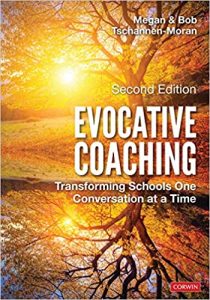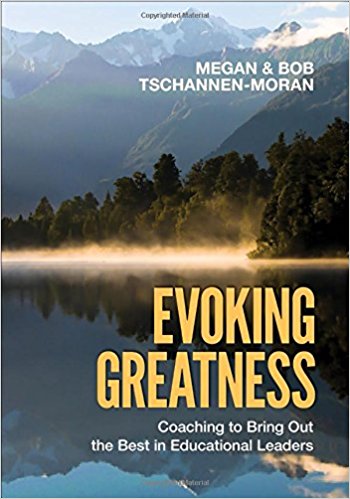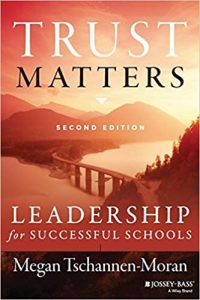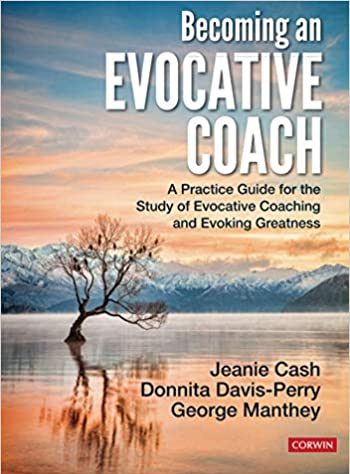Classes Start Soon!
Testimonials
Although I have had a lot of instruction and practice in listening techniques, I believe Evocative Coaching has clarified the importance of listening and the value of being totally present; not solving problems but building on the positive.
Everything that I have learned is influencing and impacting my work with students as a teacher, as a PLC facilitator with my colleagues, and with the building and district leadership as I drop “pebbles” of the Evocative Coaching model along the pathway to our school and district’s transformation.
Each week in the Evocative Coaching Training Program I learn more and more that will impact my job. I am becoming more comfortable in using the strategies and have become much more reflective in my discussions with teachers.
Through this training program I have become a better listener; I give less advice and instead practice giving empathy. I think about how the skills I am learning can impact my students and my work environment. It has helped me detach in a good way from stressors in my environment.
The consistent focus on positive feedback really supports the self-efficacy of my staff. Being reminded of the Möbius strip with story, empathy, inquiry and design thinking has really effected how I communicate / coach my staff.
I joined this course because I wanted to transform schools; I have found instead that I have been transformed.
Through this course, I have started to really feel myself on the cusp of something quite tremendous as a professional and also as a person.
Imaginative listening is a game changer in that it allows teachers to tell their stories with full engagement. The more teachers understand their stories as stories, rather than as settled facts over which they have no control, the more teachers are cultivating a willingness to change and become lifelong learners.
By listening mindfully, quietly and reflectively when teachers tell their stories, coaches disarm resistance and evoke open dialogue which sets the stage for change. It is seldom that a person is listened to without judgment and with no agenda. This alone may be why evocative coaching is refreshing and powerful enough to transform an entire school.
When I meet with a teacher or walk into his or her class, I finally feel as if I have the tools to help them reach their potential. I took this job because I like the coaching aspect but after my first year, I was not sure if I had the “it” that caused teacher to see me as more than just a helper. I feel empowered!
Featured Books
Evocative Coaching (2nd Ed.) takes a person-centered, no-fault, and  strengths-based approach to performance improvement. Bringing together research and wisdom in educational leadership and professional coaching, Evocative Coaching presents a simple yet profound model for facilitating new conversations in schools through LEAD: Listen, Empathize, Appreciate strengths, and Design experiments. This inspirational process reinvigorates the passion for making schools better, one conversation at a time.
strengths-based approach to performance improvement. Bringing together research and wisdom in educational leadership and professional coaching, Evocative Coaching presents a simple yet profound model for facilitating new conversations in schools through LEAD: Listen, Empathize, Appreciate strengths, and Design experiments. This inspirational process reinvigorates the passion for making schools better, one conversation at a time.
An innovative resource, Evocative Coaching contains research-based theory, helpful strategies, specific suggestions, and a wealth of anecdotes from coaches working in schools. The model presented in this book invites educators to focus on what they do best and to engage in larger, more integral conversations about their work and the things they care about most. Evocative Coaching equips coaches to inspire a robust curiosity and a sense of purpose that drives the ongoing professional learning essential to being a professional.
Evoking Greatness: Coaching to Bring out the Best in Educational Leaders  seeks to equip those who coach educational leaders at the building and central office levels to host meaningful and productive coaching conversations with the leaders they coach. The leadership coaches who read this book will be introduced to the evocative coaching model, a robust coaching model structured around the acronym LEAD: Listen, Empathize, Appreciate, and Design. The evocative coaching model starts with the stories that coachees bring to their work as educational leaders and to the coaching context. By spending time with these stories, skillful coaches unearth the values and fears that both motivate and block educational leaders from achieving all that they hope to achieve. The evocative coaching model then incorporates a concrete, skills-based process for expressing empathy. Once connection, trust, and rapport have been established, coach and coachee engage in a search for strengths on which to build, and together design an experiment for moving forward. This model will help guide coaching conversations that are engaging, inspiring, and productive.
seeks to equip those who coach educational leaders at the building and central office levels to host meaningful and productive coaching conversations with the leaders they coach. The leadership coaches who read this book will be introduced to the evocative coaching model, a robust coaching model structured around the acronym LEAD: Listen, Empathize, Appreciate, and Design. The evocative coaching model starts with the stories that coachees bring to their work as educational leaders and to the coaching context. By spending time with these stories, skillful coaches unearth the values and fears that both motivate and block educational leaders from achieving all that they hope to achieve. The evocative coaching model then incorporates a concrete, skills-based process for expressing empathy. Once connection, trust, and rapport have been established, coach and coachee engage in a search for strengths on which to build, and together design an experiment for moving forward. This model will help guide coaching conversations that are engaging, inspiring, and productive.
Evocative coaching is a person-centered, no-fault, strengths-based coaching model, which is a refreshing change from the deficit mindset that has disheartened and demoralized so many educators in this era of accountability. Our model invites people to explore and dream together, in a judgment-free space, in order to awaken a new and higher interest for change. Through collaborative dialogue that assesses and builds on a leader’s strengths, people enhance not only their performance but also their enjoyment and engagement with their work. Resting on strong, evidence-based practices, the evocative coaching model offers coaches the help they need to foster the capacities of educational leaders. Each chapter provides a research-based theory to undergird the strategies presented in that chapter. With specific suggestions for questions to ask, things to listen for, and ways to generate new ideas and motivation, it provides concrete guidance for those who coach leaders of schools and districts. The book is further enriched by real-life vignettes of coaches who have used the evocative coaching model as a guide for their coaching conversations with educational leaders. Questions for reflection and discussion at the end of each chapter invite the use of this book for book study and in group training settings.
Trust Matters (second edition) offers educators a practical, hands-on guide for establishing and maintaining trust within their schools as well as  providing information on how to repair trust that has been damaged. Written by Megan Tschannen-Moran—an expert on the topic of trust and schools—Trust Matters is based in solid research. It outlines the five key elements on which individuals base their trust judgments (benevolence, honesty, openness, reliability, and competency) and explores the factors that influence the development of trust. The book explores the leader’s role in fostering high quality relationships among teachers, students, and parents and examines examples of positive outcomes of trusting school environments.
providing information on how to repair trust that has been damaged. Written by Megan Tschannen-Moran—an expert on the topic of trust and schools—Trust Matters is based in solid research. It outlines the five key elements on which individuals base their trust judgments (benevolence, honesty, openness, reliability, and competency) and explores the factors that influence the development of trust. The book explores the leader’s role in fostering high quality relationships among teachers, students, and parents and examines examples of positive outcomes of trusting school environments.
Download Chapter One to start reading now!
Becoming an Evocative Coach – Research shows that coaching is the best way to bring about  robust change in both instructional and leadership practices. Coaching becomes evocative when it is a person-centered, strengths-based model grounded in adult learning theory, focused on growth.
robust change in both instructional and leadership practices. Coaching becomes evocative when it is a person-centered, strengths-based model grounded in adult learning theory, focused on growth.
Designed as a companion to both Evocative Coaching: Transforming Schools One Conversation at a Time, 2nd Edition and Evoking Greatness: Coaching to Bring Out the Best in Educational Leaders, this guide will allow coaches to reflect on their learning and put evocative coaching strategies into practice. Readers will learn how to:
• Follow the LEAD (listen, emphasize, appreciate, design) process to become a partner in professional learning
• Engage in coaching conversations as they develop evocative coaching skills through various activities that invite reflection
• Develop instructional coaching and leadership skills that foster innovation
This interactive guide is meant to be used by participants of an evocative coaching workshop, members of a book study group or PLC, a self-study reader, or anyone who wants to coach teachers and leaders to greatness.


